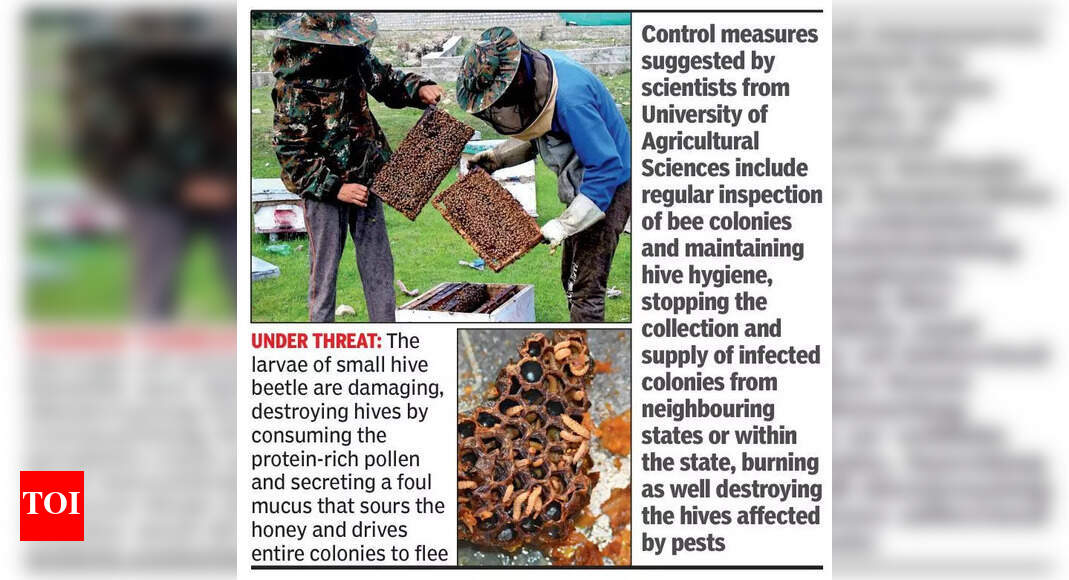Now Reading: Beehive Crises: Karnataka’s Honey Industry Faces Threats
-
01
Beehive Crises: Karnataka’s Honey Industry Faces Threats
Beehive Crises: Karnataka’s Honey Industry Faces Threats

Fast Summary
- Problem: Small hive beetles are invading bee colonies in Karnataka, causing significant damage to honey production and apiculture.
- Impact: Over 60,000 beekeepers in Karnataka are facing plummeting yields due to the pest consuming pollen, honey, and dead bees. The beetles also secrete mucus that spoils honey and forces entire colonies to flee.
- Spread: Initially seen in Southeast Asia (Thailand, Burma), these pests entered India via West Bengal and have now spread across states.
- Affected Species: Both species of honey bees-Apis cerana and Apis mellifera-are impacted; especially Apis cerana shows complete abandonment of infected colonies.
- Scientific Recommendations:
– Regular inspection of hives for cleanliness and removing debris from bottom boards every 8-10 days.
– Manual removal of beetles from affected hives.
– Destroying pest-infected hives entirely to contain spread.
– Halting interstate transportation of bee colonies suspected of infection.
- Challenge: Despite ongoing efforts at bio-control measures by scientists at University Agricultural Sciences (UAS), Bengaluru, there is currently no biological agent proven effective against this pest.
!Honey turns sour as beehives in Karnataka come under attack
Indian Opinion Analysis
The invasion of small hive beetles represents a severe ecological challenge with significant economic repercussions for india’s apiculture industry – particularly for Karnataka as a leading producer state. Honey production supports not only rural livelihoods but also biodiversity preservation through pollination services offered by bees.
The immediate solution lies in strict adherence to recommended hygiene practices across all apiaries nationwide coupled with robust monitoring systems at state borders to prevent further distribution via interstate transportation. Long-term mitigation will require investments in scientific research into sustainable control measures such as bio-control agents or chemical treatments that do not harm bee populations or local ecosystems.
This situation also underscores vulnerabilities emerging from globalized agricultural practices where pests travel between nations unchecked – emphasizing the urgent need for improved import screening processes alongside farmer education initiatives on pest containment strategies across regions like Andhra pradesh and Telangana already impacted by rapid pest spreads.
























